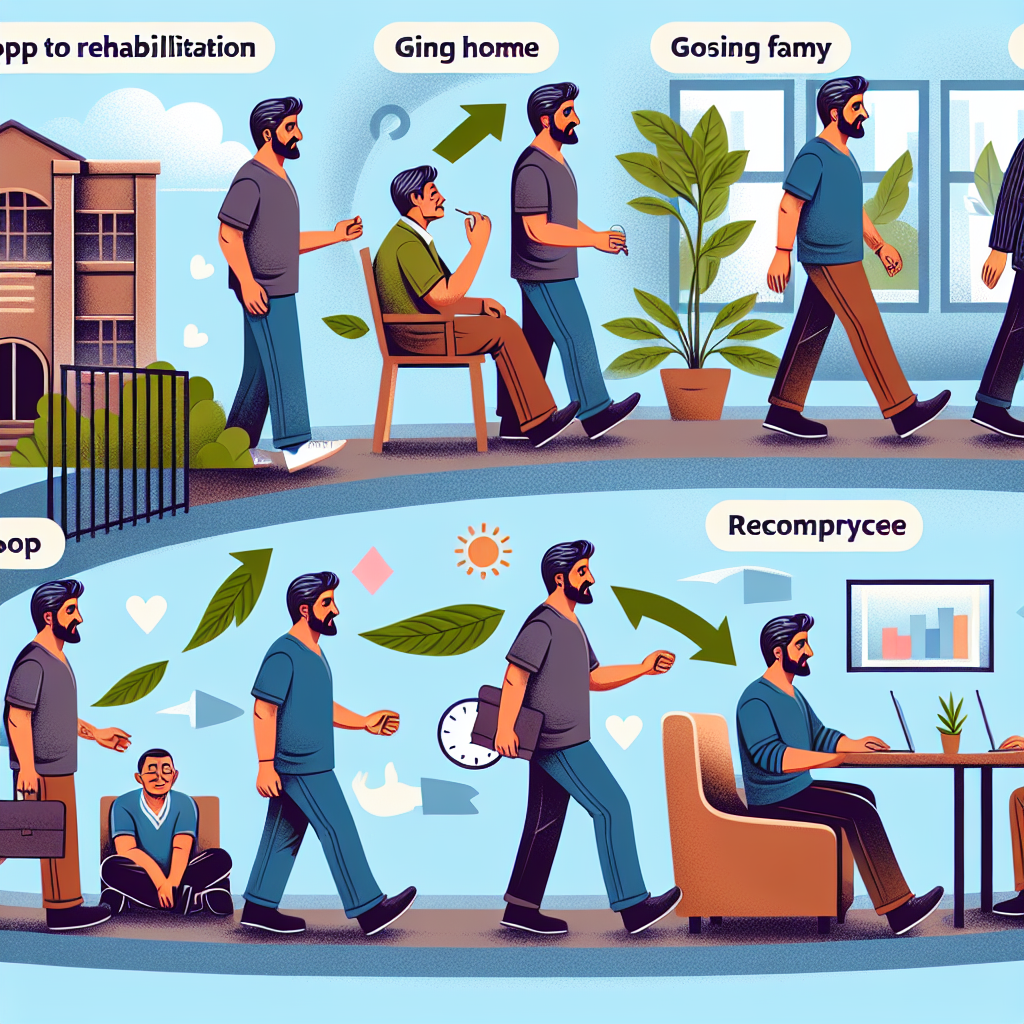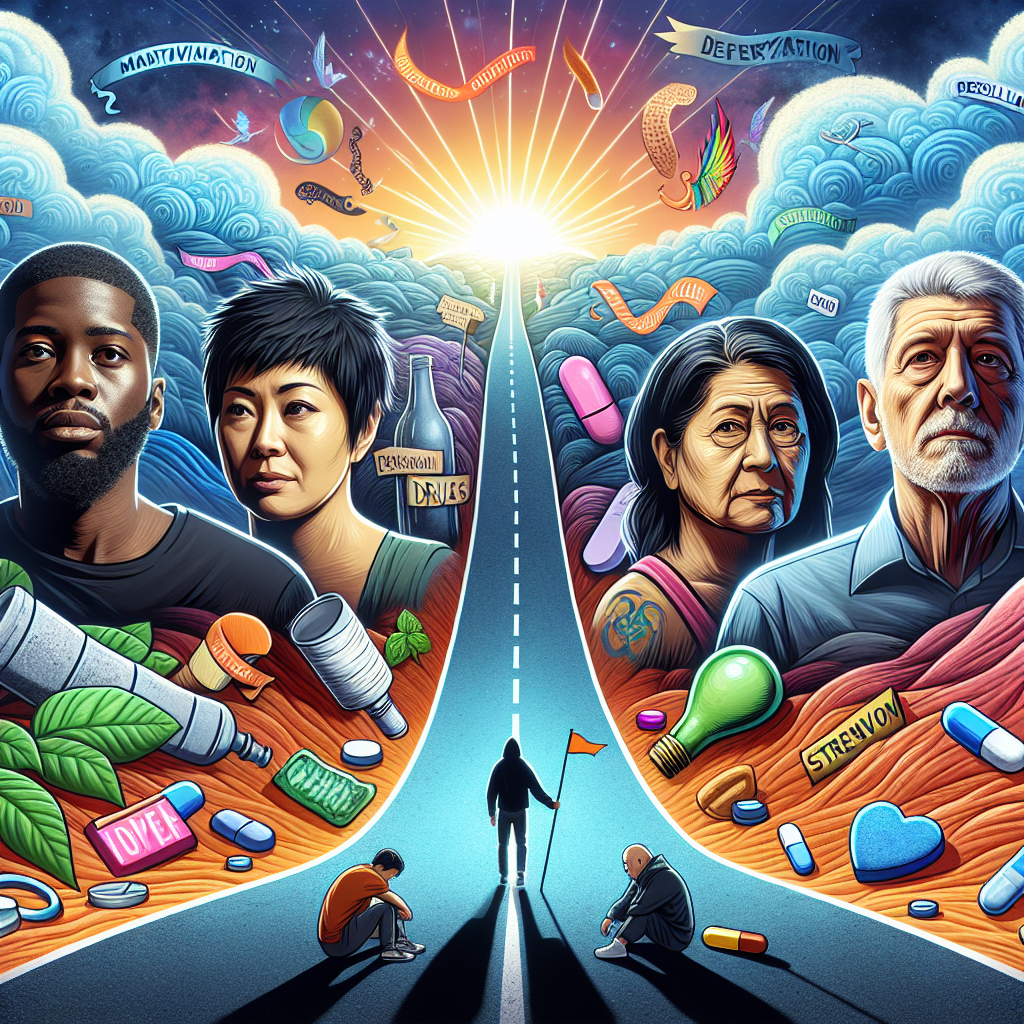-
Table of Contents
“From Darkness to Dawn: A Journey of Triumph Over Cocaine Addiction”
Introduction
“Personal Reflections on Overcoming Cocaine Addiction” is a deeply introspective narrative that delves into the harrowing journey of battling and ultimately triumphing over cocaine dependency. This account explores the multifaceted challenges faced during the struggle, the pivotal moments of realization, and the transformative steps taken towards recovery. It highlights the emotional, psychological, and physical toll of addiction, while also celebrating the resilience, support systems, and personal growth that pave the way to a renewed sense of self and purpose. Through candid reflections, this piece aims to offer hope and insight to those grappling with similar battles, emphasizing that recovery is not only possible but also a profound journey of self-discovery and empowerment.
The Journey to Sobriety: My Personal Battle with Cocaine Addiction
The journey to sobriety is often a tumultuous path, fraught with challenges and moments of despair. My personal battle with cocaine addiction was no different. It began innocuously enough, with casual use at social gatherings, but quickly spiraled into a dependency that consumed my life. The allure of the drug was powerful, offering a fleeting escape from reality and a false sense of euphoria. However, the temporary highs were inevitably followed by crushing lows, leaving me in a perpetual cycle of craving and regret.
As my addiction deepened, the impact on my life became increasingly evident. Relationships with family and friends deteriorated, my career suffered, and my health began to decline. Despite these warning signs, the grip of addiction was unrelenting. It wasn’t until I hit rock bottom that I realized the need for change. The turning point came when I found myself isolated and alone, having pushed away those who cared about me the most. It was in this moment of profound loneliness that I made the decision to seek help.
Entering a rehabilitation program was the first step on my road to recovery. The initial days were incredibly challenging, as I grappled with withdrawal symptoms and the emotional turmoil that accompanied them. However, the support of the counselors and fellow patients provided a sense of community and understanding that I had been missing. Through therapy sessions, I began to uncover the underlying issues that had contributed to my addiction. This process of self-discovery was both painful and enlightening, as it forced me to confront aspects of myself that I had long ignored.
One of the most valuable lessons I learned during my time in rehab was the importance of self-compassion. For years, I had been my own harshest critic, berating myself for my perceived failures and shortcomings. This negative self-talk had only fueled my addiction, creating a vicious cycle of self-destruction. Learning to forgive myself and to view my journey with empathy was a crucial step in my recovery. It allowed me to move forward without the burden of guilt and shame that had previously held me back.
As I transitioned out of rehab and back into everyday life, maintaining sobriety became a daily commitment. I surrounded myself with a support network of friends and family who encouraged my progress and held me accountable. Additionally, I found solace in new hobbies and activities that provided a healthy outlet for my energy and emotions. Exercise, meditation, and creative pursuits became integral parts of my routine, helping to fill the void that cocaine had once occupied.
The road to sobriety is not without its setbacks. There were moments when the temptation to relapse was overwhelming, but each time I reminded myself of the progress I had made and the life I was building. The journey is ongoing, and I continue to learn and grow each day. My battle with cocaine addiction has taught me the value of resilience and the power of hope. It has shown me that even in the darkest moments, there is a possibility for change and a chance for a brighter future.
In sharing my story, I hope to inspire others who may be struggling with addiction. Recovery is possible, and it begins with the decision to seek help and to believe in oneself. The path may be difficult, but the rewards of a sober life are immeasurable. Through perseverance and support, it is possible to overcome addiction and to reclaim one’s life.
Finding Strength in Vulnerability: How I Overcame Cocaine Addiction
Finding strength in vulnerability was a pivotal moment in my journey to overcome cocaine addiction. For years, I lived in the shadows, hiding my struggles from friends and family, convinced that admitting my problem would be a sign of weakness. However, it was only when I embraced my vulnerability that I found the strength to change my life.
Initially, my relationship with cocaine began innocuously enough. It started at social gatherings, where the drug seemed to offer a temporary escape from the pressures of daily life. The euphoria was intoxicating, and I found myself increasingly reliant on it to cope with stress and anxiety. What began as occasional use quickly spiraled into a full-blown addiction, consuming my thoughts and dictating my actions.
As my addiction deepened, the facade I had carefully constructed began to crumble. I became increasingly isolated, pushing away those who cared about me. My work suffered, and my health deteriorated. Despite these warning signs, I was in denial about the severity of my problem. It wasn’t until I hit rock bottom that I realized I needed help.
Admitting that I had a problem was the first and most difficult step. I remember the day vividly; I was sitting alone in my apartment, surrounded by the remnants of my addiction. The weight of my situation was crushing, and for the first time, I allowed myself to feel the full extent of my despair. It was in that moment of vulnerability that I decided to seek help.
Reaching out for support was both terrifying and liberating. I confided in a close friend, who encouraged me to seek professional help. With their support, I entered a rehabilitation program. The initial days were grueling, as I faced the physical and emotional withdrawal symptoms. However, the sense of community within the program provided a lifeline. I met others who had faced similar struggles, and their stories of resilience inspired me to keep going.
Therapy played a crucial role in my recovery. Through individual and group sessions, I began to understand the underlying issues that had fueled my addiction. I learned healthier coping mechanisms and strategies to manage stress and anxiety. The process was not linear; there were setbacks and moments of doubt. However, each challenge I faced reinforced my determination to stay clean.
One of the most transformative aspects of my recovery was rebuilding my relationships. I had to confront the hurt I had caused and seek forgiveness from those I had pushed away. This required a level of honesty and vulnerability that I had previously avoided. To my surprise, many of my loved ones responded with compassion and support. Their forgiveness and encouragement became a source of strength, motivating me to continue my journey.
As I reflect on my path to overcoming cocaine addiction, I am struck by the power of vulnerability. Embracing my weaknesses allowed me to find the strength to seek help and make lasting changes. Today, I am proud of the progress I have made. While the journey is ongoing, I am equipped with the tools and support to face whatever challenges come my way.
In sharing my story, I hope to inspire others who may be struggling with addiction. It is a difficult and often lonely battle, but there is hope. By finding strength in vulnerability and seeking support, it is possible to overcome even the most daunting obstacles. My journey is a testament to the resilience of the human spirit and the transformative power of embracing our true selves.
Life After Addiction: Rebuilding My World Post-Cocaine
Life after addiction is a journey filled with both challenges and triumphs, and my experience of rebuilding my world post-cocaine has been nothing short of transformative. Emerging from the shadows of addiction, I found myself standing at the precipice of a new beginning, one that required immense courage, resilience, and an unwavering commitment to change. The path to recovery was not linear, but each step forward brought me closer to reclaiming my life and rediscovering my true self.
Initially, the process of overcoming cocaine addiction felt like an insurmountable task. The physical and psychological grip of the substance had left me feeling powerless and isolated. However, the first crucial step was acknowledging the problem and seeking help. With the support of a dedicated team of healthcare professionals, I embarked on a comprehensive treatment program that addressed both the physical dependency and the underlying emotional issues that had fueled my addiction. This holistic approach was instrumental in laying the foundation for my recovery.
As I progressed through treatment, I began to understand the importance of building a strong support network. Friends, family, and support groups became my pillars of strength, offering encouragement and understanding during moments of doubt and vulnerability. Their unwavering belief in my ability to overcome addiction provided the motivation I needed to stay committed to my recovery journey. Additionally, connecting with others who had faced similar struggles helped me realize that I was not alone, and that recovery was indeed possible.
One of the most significant aspects of rebuilding my life post-cocaine was learning to embrace a new, healthier lifestyle. This involved making conscious choices to prioritize my physical and mental well-being. Regular exercise, a balanced diet, and adequate sleep became essential components of my daily routine. These positive habits not only improved my overall health but also helped to restore my sense of self-worth and confidence. Moreover, engaging in mindfulness practices such as meditation and yoga allowed me to cultivate inner peace and resilience, enabling me to navigate the inevitable challenges of recovery with greater ease.
In addition to adopting a healthier lifestyle, I also focused on rediscovering my passions and interests. During the years of addiction, many of my hobbies and aspirations had been neglected or forgotten. Reconnecting with these activities brought a renewed sense of purpose and joy into my life. Whether it was painting, writing, or exploring the outdoors, these pursuits provided a constructive outlet for my energy and emotions, helping to fill the void that cocaine had once occupied.
Furthermore, rebuilding my world post-cocaine involved addressing the emotional scars left by addiction. Therapy played a crucial role in this aspect of my recovery, allowing me to confront and process the underlying issues that had contributed to my substance abuse. Through therapy, I gained valuable insights into my behavior patterns and learned healthier coping mechanisms for dealing with stress and emotional pain. This emotional healing was essential for breaking the cycle of addiction and fostering long-term recovery.
As I reflect on my journey, I am filled with a profound sense of gratitude for the progress I have made and the support I have received along the way. Overcoming cocaine addiction has been one of the most challenging yet rewarding experiences of my life. It has taught me the importance of self-compassion, perseverance, and the power of human connection. While the road to recovery is ongoing, each day brings new opportunities for growth and healing. By sharing my story, I hope to inspire others who are facing similar struggles to believe in their ability to overcome addiction and rebuild their lives.
The Power of Support: Key Relationships That Helped Me Overcome Cocaine Addiction
Overcoming cocaine addiction was one of the most challenging experiences of my life, but it was also one of the most transformative. The journey was fraught with moments of despair and self-doubt, yet it was the power of support from key relationships that ultimately guided me toward recovery. Reflecting on this journey, I realize how crucial these connections were in helping me reclaim my life.
Initially, I was hesitant to reach out for help. The stigma surrounding addiction made me feel isolated and ashamed. However, the first significant relationship that played a pivotal role in my recovery was with my family. Despite the pain and disappointment my addiction caused them, their unwavering love and support became a cornerstone of my healing process. My parents, in particular, never gave up on me. They attended family therapy sessions, educated themselves about addiction, and provided a safe space for me to express my struggles. Their belief in my ability to overcome addiction gave me the strength to take the first steps toward recovery.
In addition to my family, my friends also played a crucial role. True friends are those who stand by you in your darkest moments, and I was fortunate to have such individuals in my life. One friend, in particular, was instrumental in my journey. He had battled addiction himself and emerged victorious. His firsthand experience and empathetic understanding provided me with a sense of hope and possibility. He introduced me to support groups and encouraged me to share my story, which was a cathartic experience. Through these groups, I met others who were on similar journeys, and their stories of resilience and recovery inspired me to keep pushing forward.
Another key relationship that significantly impacted my recovery was with my therapist. Seeking professional help was a turning point in my journey. My therapist provided me with the tools and strategies to cope with cravings, manage stress, and address the underlying issues that contributed to my addiction. Through cognitive-behavioral therapy, I learned to reframe negative thought patterns and develop healthier coping mechanisms. My therapist’s guidance and support were invaluable, helping me navigate the complexities of addiction and recovery.
Moreover, my relationship with myself evolved throughout this journey. Self-compassion and self-forgiveness were concepts I struggled with initially. However, as I progressed in my recovery, I began to understand the importance of being kind to myself. I learned to celebrate small victories and not be too harsh on myself during setbacks. This shift in mindset was crucial in maintaining my motivation and commitment to sobriety.
Lastly, the support from my community played a significant role. Engaging in community activities and volunteering provided me with a sense of purpose and belonging. It reminded me that I was not alone and that there were people who cared about my well-being. The sense of community and connection helped me rebuild my self-esteem and reinforced my commitment to staying clean.
In conclusion, the power of support from key relationships was instrumental in helping me overcome cocaine addiction. My family, friends, therapist, and community provided the love, understanding, and encouragement I needed to navigate this challenging journey. Their unwavering support and belief in my ability to recover gave me the strength to persevere. Today, I am grateful for these relationships and the role they played in helping me reclaim my life. My journey is a testament to the power of support and the incredible impact it can have on one’s path to recovery.
Q&A
1. **Question:** What are some common emotional challenges faced during the initial stages of overcoming cocaine addiction?
**Answer:** Common emotional challenges include intense cravings, anxiety, depression, irritability, and feelings of hopelessness.
2. **Question:** How can support systems play a role in overcoming cocaine addiction?
**Answer:** Support systems, such as family, friends, and support groups, provide emotional encouragement, accountability, and practical assistance, which are crucial for maintaining sobriety.
3. **Question:** What are some effective coping strategies for dealing with triggers and cravings?
**Answer:** Effective coping strategies include engaging in physical activities, practicing mindfulness and meditation, seeking therapy, and avoiding environments or people associated with drug use.
4. **Question:** How important is professional treatment in the recovery process from cocaine addiction?
**Answer:** Professional treatment is often essential as it provides medical supervision, structured programs, therapy, and sometimes medication to manage withdrawal symptoms and prevent relapse.
Conclusion
Overcoming cocaine addiction is a profound journey marked by immense personal growth, resilience, and transformation. It involves confronting deep-seated issues, seeking support, and making significant lifestyle changes. The process is often fraught with challenges, but it ultimately leads to a renewed sense of self, improved health, and a more fulfilling life. Reflecting on this journey highlights the importance of perseverance, the power of support systems, and the potential for recovery and redemption.



